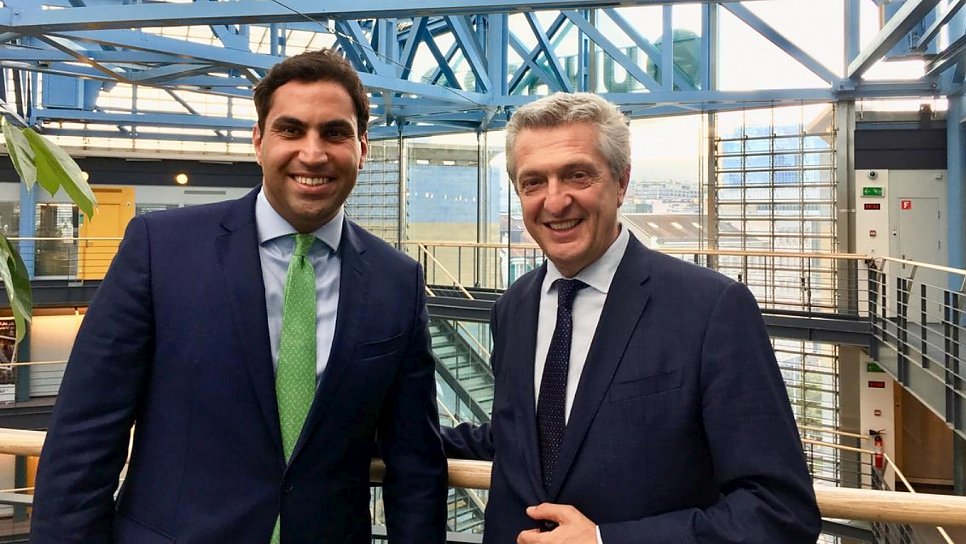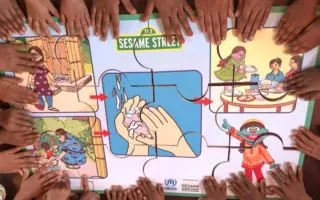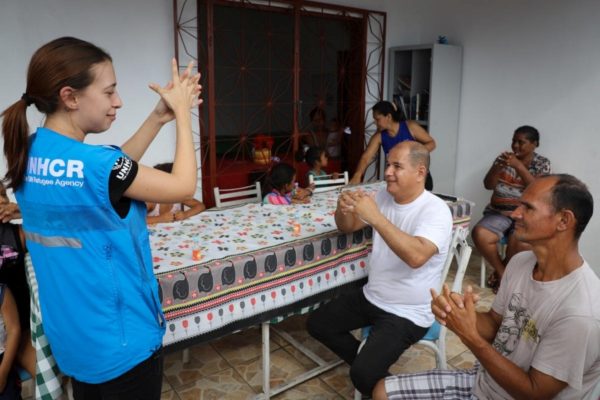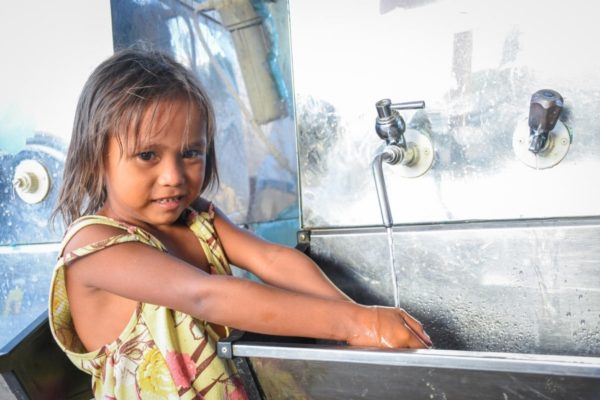
Ahmad Alhendawi, Secretary-General of the World Organization of the Scout Movement, poses for a photo with UN High Commissioner for Refugees Filippo Grandi at UNHCR headquarters in 2019. © UNHCR/Dustin Okazaki
The worldwide movement of Scouts has long supported UNHCR. Now that support is being renewed and deepened, even in the face of the COVID-19 crisis.
By Matthew Mpoke Bigg in London
Every year, young people in the global scouting movement gather for days of action. and adventure. They also find time to learn about refugees as part of a partnership with UNHCR, the UN Refugee Agency.
This year, due to the COVID-19 pandemic, they took their meeting online, where they discussed ways scouts can continue to help refugees and other vulnerable people during the crisis.
UNHCR High Commissioner Filippo Grandi and Ahmad Alhendawi, Secretary General of the World Organization of the Scouts Movement, on Friday took part in a dialogue with two young scout leaders screened live on Facebook and YouTube.
It was styled like a TV chat show and scouts, parents and young people in different parts of the world tuned in.
“The incredible thing about the scouting movement is the sense of being a part of something bigger, the camaraderie of a global movement for good and the opportunities for real change that this provides,” said Grandi. “That sense of solidarity is as important today in battling the COVID-19 pandemic as it is in ensuring that those forced to flee their homes by war and conflict are not forgotten. In partnership, UNHCR and the scouts can make a tangible difference to refugee lives around the globe,” he said.
Grandi and Alhendawi signed a fresh Memorandum of Understanding, building on a relationship between the two organizations that dates back to 1995. National scout organizations under the memorandum have included refugees in cities and urban areas. For example, in Dadaab camp in north-eastern Kenya there are more than 1,500 scouts.
“UNHCR and the scouts can make a tangible difference to refugee lives.”
More than 80 per cent of the world’s refugees live in low- and middle-income countries with weaker health systems. Many live in densely populated camps, or in urban areas. While the number of COVID-19 cases reported among refugees remains low, prevention remains of paramount importance, Grandi said.
Even though many young people will be concerned about the pandemic, he stressed there were still opportunities for scouts to be involved, while maintaining social distancing.
If they are involved with distributing care packages to the neediest members of their local community, scouts could ask their scout leaders to look out for refugees, he said.
At the same time, scouts can talk about refugee issues in their conversations online and by phone with their friends and family.
“We are all connected, no matter where we live, no matter who we are.”
“Be the voice … for young refugees,” he said, adding that more than half of the world’s over 70 million refugees and displaced people are under 18 years old. That message was echoed by Alhendawi in a rallying call to the scout movement.
Scouts can also support UNHCR’s response plan for coronavirus and advocate for refugees to be included in national response plans, because everyone counts, Grandi said.
“The COVID-19 pandemic demonstrates clearly that we are all connected, no matter where we live, no matter who we are,” he said.
Originally published by UNHCR on 03 April 2020





